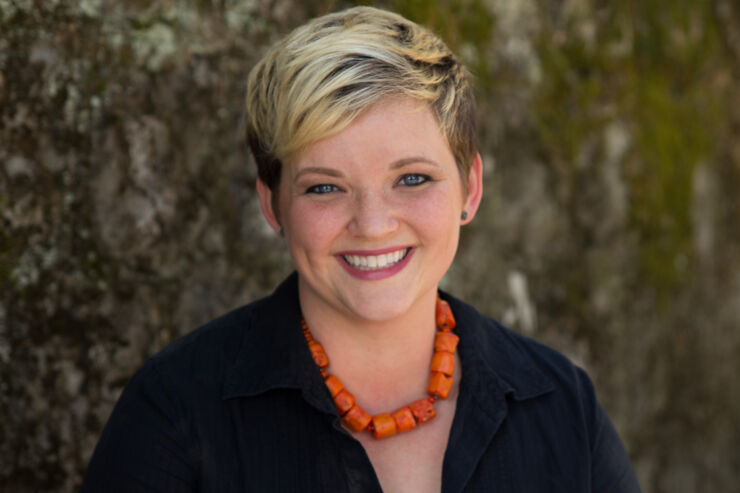Name: Emily Plank
Programme: Child Studies
Year of graduation: 2019
Occupation: Professor of Sociology and Religion
Country of origin: United States
Where do you work?
I work for Pepperdine University. Pepperdine is a university located in the United States with study-abroad campuses at several places around the world - I work at the campus located in Lausanne, Switzerland.
What do you do at your job?
I teach introductory courses in Sociology and Theology.
What is the best and most challenging part of your job?
The best part of my job is interacting with students. I love teaching. The most challenging part of my job is to manage the responsibilities of my work alongside responsibilities to my family (I have three children), and my continued work towards a doctoral degree.
Tell us about your background. How and why did you choose to study in Sweden and specifically at Linköping University (LiU)?
I came to LiU a bit unconventionally: after completing my undergraduate degree in education, I spent the subsequent fifteen teaching and consulting with other educators. My consulting work led me to write a book that studied childhood as its own culture, and in the course of researching for that book, I discovered the field of Child Studies. When I began to research Child Studies programs, I learned that the program at LiU is one of the oldest and most reputable in the world. I was thrilled to discover that the program was offered a degree program delivered in a blended model: courses online with periods of on-campus seminar time.
Tell us a bit about your programme. What did you enjoy about studying here?
The thing I appreciated most was the ability to have such high quality teaching and training in distance classes. Because I came to LiU later in life, I have children and am firmly rooted in my local community. Relocating for graduate work was not possible. At the same time, I was worried that a distance-learning program would lack the rigor and high quality of an in-person degree. This was not at all true! My courses were taught by instructors who have published and worked extensively in the field of child studies, and I received excellent training that has prepared me for the next step in my career.
How did studying in Sweden differ from being a student in your home country, and in other countries where you’ve studied?
The structure of classes in Sweden is different. Taking classes in modules where you focus on one course at a time rather than taking four courses simultaneously is unheard of in the United States.
Do you have any particular memories that stand out?
I loved being in Sweden at different times of the year. I came for a week-long seminar in February, and a week-long seminar in June. Experiencing the deep cold and long nights of winter, and the warmth and long-lasting sun of the summer was quite an impressive experience. I also enjoyed sharing meals with my cohort when we gathered together in person. Most memorable was probably my thesis defense for the ways that I felt supported and challenged as an academic, and the pride I felt at what I’d accomplished.
How have your studies at LiU helped you in your career? What has stood out as being the most helpful part?
Since completing my degree at LiU, I have also completed an MA in Theology through the University of Notre Dame in the United States. I am currently in the process of submitting a proposal to complete a PhD in Child Theology – a subfield of theology that combines Child Studies and Theology. My degree at LiU has opened doors for me to teach introductory college courses and will open the door for me to begin my doctorate. I have a solid foundation in methodology and research in the field, and I have been well prepared as an academic to continue my education.
Why do you think others should choose to study in Linköping? What do you think is unique about LiU that you can’t find anywhere else?
The ability to do such high-quality academic work with such talented instructors at a distance is something I could not find elsewhere. The Child Studies department is phenomenal, and I’m lucky I was able to work there.
What advice do you have for future international students at LiU?
As a distance student, it helped me to connect with other international students in my cohort. We would often write to each other for support and give each other feedback on our work. I felt like I had friends, even though we were all in different places.